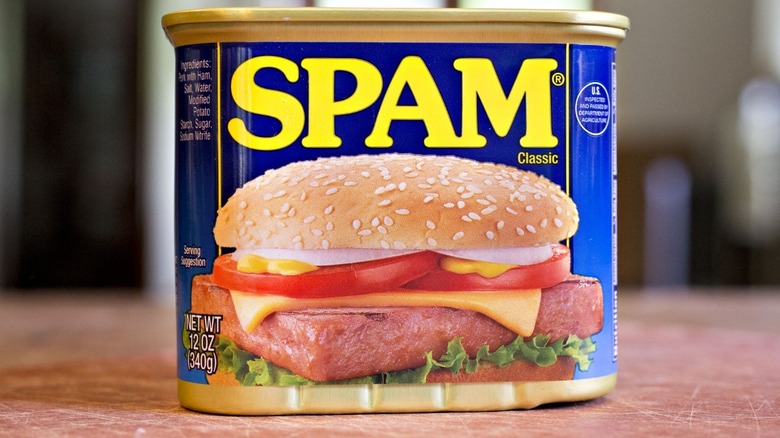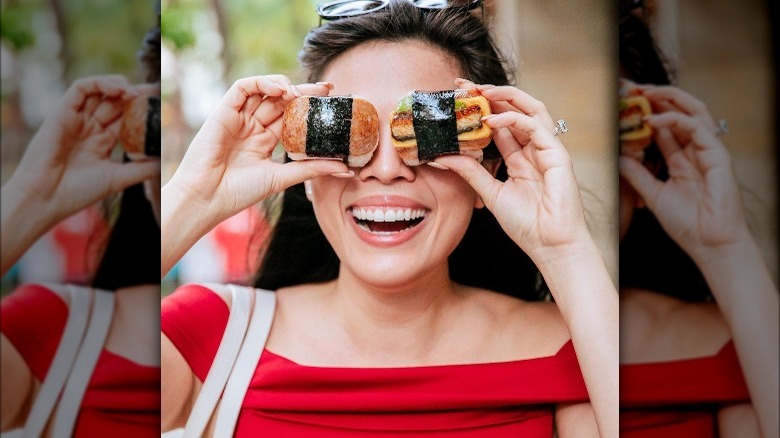Yes, There's An Entire Festival Dedicated To Spam
Spam, a food that was once a matter of necessity, rather than enjoyable to eat, is now celebrated every year in Hawaii with its own dedicated festival, SPAM JAM. The now popular meat in a can was first introduced in 1937 by the Hormel company and became globally popular during World War II (via Time). Although considered a "mystery meat" by many, the pink rectangular meat consists of just six ingredients — pork with ham, salt, water, potato starch, sugar, and sodium nitrate (per Spam's website).
This combination of ingredients doesn't sound all that appetizing, but eating the tinned meat was a matter of survival in Hawaii, Korea, and Japan during the Second World War. In Hawaii, food historian Rachel Laudan tells Eater, "they couldn't intern all the Japanese," so, in order to restrict their activities, the United States shut down the largely Japanese-American-operated deep-sea fishing businesses.
Fish was the main source of protein for Hawaiians, so Spam served as a replacement in these desperate times. Out of the struggle came dishes that are now staples in Hawaiian cuisine, like Spam musubi, fried rice, and loco moco, all of which are celebrated at the yearly SPAM JAM festival.
In Hawaii, there has been an absence of in-person events since the onset of the pandemic in March of 2020 (via Travel Weekly). SPAM JAM's return this year serves as a symbol of hope, although they are changing the format for the 2022 installment out of an abundance of caution.
SPAM JAM returns to Waikiki this year after a two year hiatus
In previous years, the celebration of the canned meat was a one-day block party on Waikiki, but per a press release shared with Mashed, this year it's a nine-day celebration (April 22-May 1) that largely takes place in restaurants, with dine-in and takeout options.
"Every kid here grows up eating Spam," SPAM JAM marketing director Toby Tamaye told Travel Weekly, adding "When you go to restaurants though, you hardly find Spam on the menus unless it's a breakfast place. So we want to challenge the chefs to create some really unique Spam dishes." In addition to Spam tastings at about 20 Waikiki restaurants, there will be opportunities for attendees to snag some SPAM swag at nearby shopping centers.
The commemoration of Spam's popularity in Hawaii is a tasty experience for all, and it's also for a good cause. The Hawaii Food Bank receives a portion of the proceeds from the festival, and since its first one, 18 years ago, they have collected more than 10,000 pounds of SPAM to be donated to local residents. From what we can tell from their website, SPAM JAM is not a ticketed event, you would just need to make arrangements to get to Waikiki!

